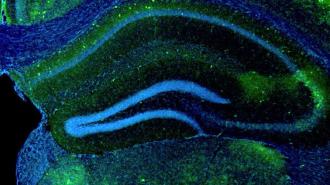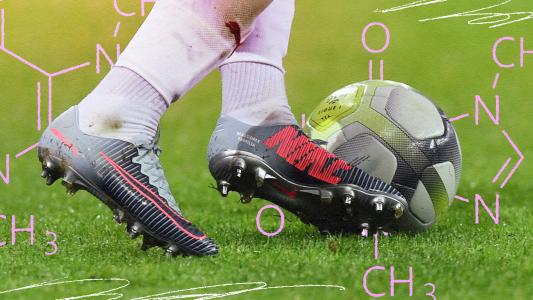Bioengineered protein could enhance memory
Neurologists have discovered a direct link between our memory and the chemical activity of an important protein molecule in the brain. Engineering this molecule in mouse brains improved the animals’ memory — a result that hints at the possibility of new treatments for memory problems.
The science: As we form new memories, the neurons in our brains adjust their connections between each other. This alters the strength of chemical signals passed across synapses from one neuron to another, where they are picked up again by specific receptors.
In such a deeply complex landscape, the receptor proteins’ chemical environment needs to be carefully regulated. Protein molecules named “kinases” play a crucial role in this molecular management.
As memories form, new synapses create new pathways for information.
One of them, named LIMK1, changes the molecular structures of dendrites — branches protruding from the main body of the neuron, allowing them to maintain deeply complex webs of interconnections.
More specifically, LIMK1 drives the formation of dendritic spines, on which most synapses can be found, which branch off further from the main part of each dendrite. As memories form, dendritic spines reach out to form new synapses, creating new pathways for information to be transmitted.
Neurologists have now been studying the role of LIMK1 for some time, but today, they still haven’t identified a direct link between our memory and the chemical processes triggered by the molecule.
The experiment: In a recent study published in Science Advances, researchers led by Cristian Ripoli at the Catholic University in Rome aimed to establish this link and determine whether the chemical activity of LIMK1 could even be manipulated to enhance our memory.
They started by genetically modifying neurons in a group of mice to alter the structure of LIMK1 in their synapses. This turned the proteins into a “molecular switch,” which, when flipped, modified the sequence of amino acids making up the proteins, altering their activity. The switches were designed to be activated on command by introducing the drug rapamycin.
The modification slowed down cognitive decline in older animals.
The result: When they tested the altered protein, Ripoli’s team found that LIMK1 in its switched state caused dendritic spines to form through a slightly different chemical process, which ultimately caused them to become larger in the long term.
Just as they hoped, the researchers found that this modification appeared to enhance the transmission of information across the mice’s synapses. This not only helped the mice to form new memories and recall them more efficiently, it also slowed down cognitive decline in older animals.
Enhancing memory: For the first time, the result establishes a direct link between memory and the chemical processes initiated by LIMK1. The discovery is an important milestone in our understanding of how memory functions at a molecular level.
Ripoli’s team now hopes their findings could be an important step towards new drugs which could potentially slow or even reverse the progress of memory-related conditions, including Alzheimer’s and dementia. In their upcoming research, they will now focus on building concrete proof that these treatments could really work.
We’d love to hear from you! If you have a comment about this article or if you have a tip for a future Freethink story, please email us at [email protected].






